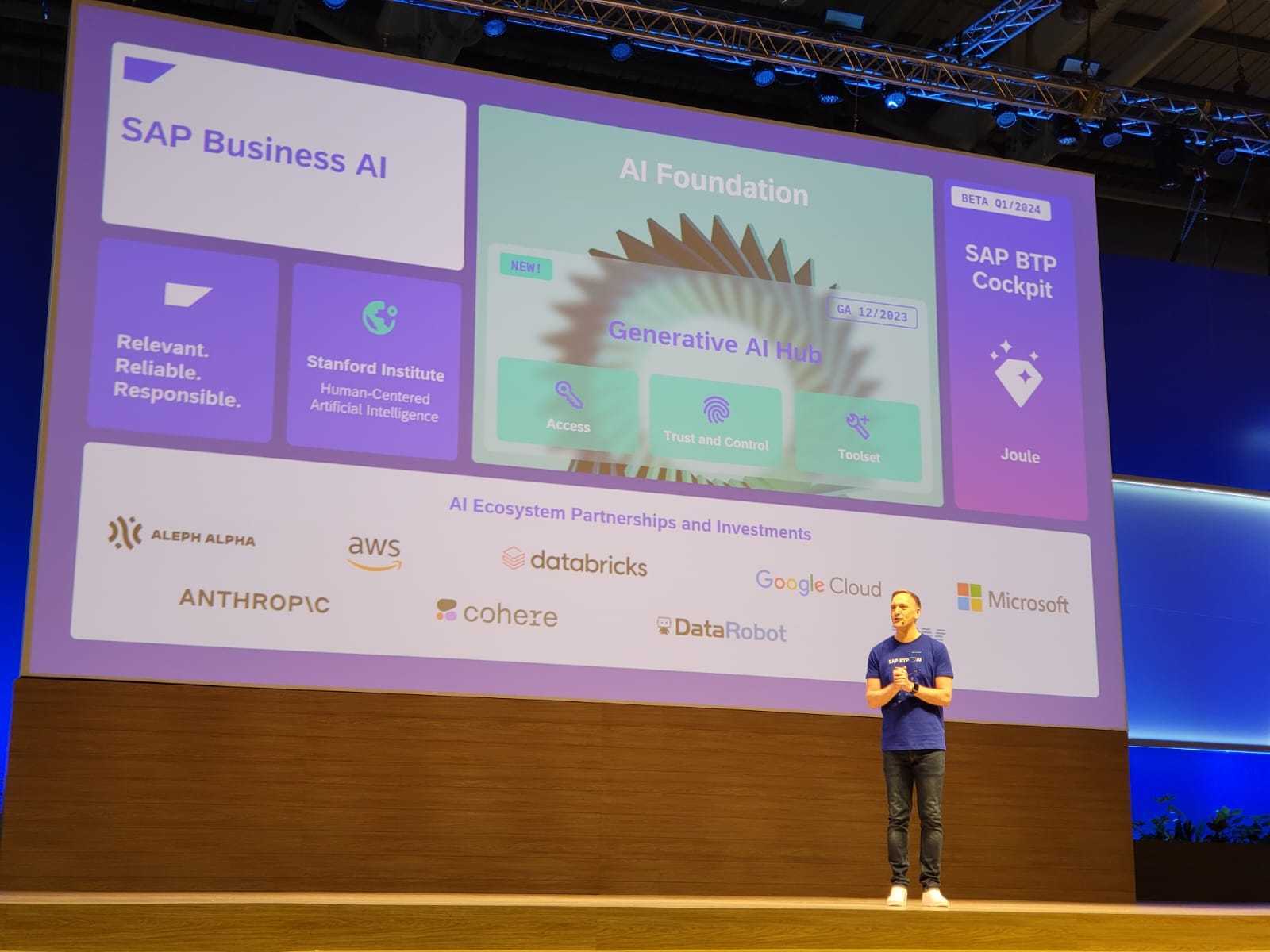Artificial Intelligence
Tech giants prepare
for hot AI summer
At SAP TechEd in India, it became clear that both software and hardware giants are pushing the AI envelope, writes ARTHUR GOLDSTUCK.
In the same week that China, the USA, UK, and European Union agreed to work together to manage risks created by artificial intelligence (AI), business leaders were preparing for a “hot AI summer”.
Juergen Meuller, chief technology officer of German software giant SAP, used the phrase during his keynote address at the SAP TechEd 2023 conference in Bengaluru (Bangalore), the Silicon Valley of India, on Thursday, when he described the endless use cases that had suddenly become possible.
A few days earlier, the world’s biggest PC maker, Lenovo, at its Tech World 2023 event in Austin, Texas, unveiled a comprehensive suite of AI capabilities, and an “AI for All” strategy. Lenovo Chairman and CEO Yuanqing Yang was joined on stage by the CEOs of two of the world’s biggest chip makers, Nvidia’s Jensen Huang and AMD’s Lisa Su. The event was addressed via video by Microsoft chairman and CEO Satya Nadella, Qualcomm CEO and president Cristiano Amon, and Intel CEO Pat Gelsinger.
Yang announced that expanded partnerships with these organisations would help businesses easily deploy custom generative AI applications.
The generative AI revolution sparked by the launch of ChatGPT at the end of November last year has also sparked fears of economic and social disaster. This prompted British prime minister Rishi Sunak to convene this week’s summit in England that led to the more than 25 countries and the EU signing the “Bletchley Declaration” on Wednesday, agreeing to establish a common approach on AI oversight.
On the same day, Microsoft began selling its highly anticipated Copilot AI add-on for its Office software, targeting large enterprises. It is expected to add billions of dollars in annual revenue for the world’s biggest software company.
SAP, ranked number three globally in software sales, works closely with Microsoft, but has developed its own AI platform, Joule, with the catchphrase: “The AI Copilot that truly understands your business.”
On Thursday, Mueller announced a comprehensive series of new generative AI capabilities, aimed directly at developers. Combined with the Microsoft Copilot release and the Lenovo announcements, it underlined the extent to which software and hardware giants are pushing the AI envelope.
“Today’s dynamic technology and business landscape means every developer needs to be an AI developer,” said Mueller in his keynote address. “The innovations we’re launching at SAP TechEd (are) supporting the developers at the heart of the AI revolution and providing them with resources they need to transform the way businesses run.”
He unveiled SAP Build Code, which draws on Joule to further boost productivity, by embedding code generation capabilities for AI systems and applications. He also announced a “vector database” that would manage unstructured data, such as text, images or audio, and provide long-term memory and context to AI models.
“For example, users can search for suppliers based on the language in their contracts to examine payment history and trace individual orders. These powerful new vector database features enhance interactions between large language models and an organisation’s mission-critical data.”
SAP chief marketing officer Julia White joined Mueller on stage and revealed that most of the developers creating and extending SAP solutions were working at partner organisations. Of the more than 2,000 partner solutions available in the SAP software store, she said, more than 400 already offered AI as part of the solution.
Later, she told Business Times that AI promised a bright future for any working person.
“If I look where AI is going, I imagine that every person working across the world has that smartest colleague right by their side, helping them, like the AI serving up those insights that you might not have discovered otherwise, or connecting dots in a new way to unlock new insights and making everyone more productive or capable. And also, of course, doing it responsibly.”
Five years from now, she said, everyone will have “that partner at our side, that AI capability, with us”.
“And it’s going to be very natural, I think it’s going to become almost invisible, but in a way where there’s still humans at the wheel, but the technology is invisibly powering us.
“One of the fundamental problems of the world today is communication breakdowns, and not everyone is a brilliant communicator. That leads to a lot of animosity and difficulty that frankly, if we had fantastic communications across the globe, we wouldn’t face (this). What if we all were brilliant at it, and we can understand each other better?
“I think we’re all learning fast, and we’ll adjust from there. We’re trying to create an experience that is more assisting a human than doing it on behalf of a human.”


















